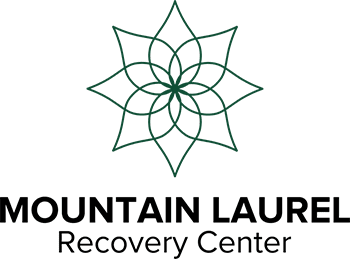Travel can be stressful for those in the early stages of recovery. Residential treatment emphasizes the value of a routine for staying sober, but traveling throws your regular schedule out the window.
Staff at Mountain Laurel Recovery Center’s Pennsylvania drug and alcohol addiction treatment program are committed to helping you build the foundation for a lasting recovery.
Here are some tips to help you stay on track while traveling.
Keep Yourself Accountable
If you’re in Alcoholics Anonymous (AA) or another 12-Step peer support group, tell your sponsor where you’re going before your trip. If you will be away for an extended period of time, plan to check in periodically.
You can also promote a sense of accountability by arranging to check in with a friend you trust who won’t be traveling with you. This person doesn’t necessarily need to be in recovery themselves, as long as they understand your commitment to sobriety.
Choose Your Destination Carefully
In the early stages of recovery, it’s generally best to stick close to home and limit yourself to trips only lasting a day or two. Once you’ve successfully handled a few of these shorter outings, you’ll feel more confident about taking a longer trip.
As for the destination itself, try to stick to locations that focus on nature, relaxation, and wellness instead of drinking and partying. For example, visiting a national park is a much safer choice than gambling at a casino. If you need some travel ideas, check out the Sober Vacations website.
Keep in mind that your sobriety should always be your first priority. You are not obligated to accept invitations to weddings, family reunions, or other group events if you feel the trip is not manageable in this stage of your recovery. People who care about you and your best interests will understand why you’ve decided to decline an invitation and put your sobriety first.
Remove Obstacles Before Your Trip
Set yourself up to succeed by being honest with your traveling companions about what you need. If they understand your concerns, they can help you avoid potential relapse triggers. You can also work together to brainstorm an exit strategy that will give you a safe way to escape any events or activities that make you feel uncomfortable.
If you’re staying at a hotel, tell the staff you are in recovery and ask them to remove the alcohol from the mini fridge in your room. If the staff know you are in recovery, this can also prevent them recommending activities that would involve alcohol. Hotel staff members receive requests like this quite frequently, so there’s no need to be shy about speaking up.
Continue to Practice Healthy Lifestyle Habits
It’s OK to indulge in a special dessert or a regional delicacy, but try to stick to healthy meals as much as possible. Balanced nutrition keeps your blood sugar stable, which regulates your mood and makes it easier to resist cravings. If you’re worried about having trouble finding healthy snacks, bring a small bag with protein bars or trail mix with you.
Regular exercise is also important, even when you’re traveling. Try to choose a hotel with a fitness center, if possible. Or, plan activities for your group that involve exercise—such as a walking tour of local attractions.
At Group Events, Bring a Non-Alcoholic Drink
If you’ll be attending group events where there will be people who don’t know you are in recovery, keeping your glass full of your favorite non-alcoholic beverage can help you avoid any potential awkwardness. Most people won’t offer you a drink if they see you already have something in your hand.
If you’re asked directly whether you want a drink, remember you don’t have to share any part of your recovery story that makes you uncomfortable. It’s perfectly fine to simply say “No, thank you” or “Not tonight” when offered a drink.
Have a Plan to Fill Your Downtime
Even the most exciting vacation is generally not filled with non-stop action, and boredom is a common trigger for cravings. Plan to bring books, motivational podcasts, your favorite music, meditation apps, or a way to watch a new Netflix show.
Note that you can attend 12-Step meetings in almost any location. Even cruise ships regularly host meetings for travelers who need the accountability and support. Attending meetings while traveling alleviates boredom and gives you a chance to hear new perspectives on addiction recovery.
Keep Your Expectations in Check
Unrealistic expectations can create frustration and disappointment. Be patient with yourself and your traveling companions. Flight delays, missed dinner reservations, family squabbles, tired or cranky children, and other mishaps can occur despite your best efforts.
When you feel yourself getting frustrated or angry, find a quiet place to calm down. Practice deep breathing, use your phone to listen to some soothing music, or call your sponsor. Once you’re feeling better, you can return to making the most of your trip.
